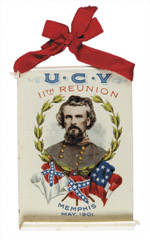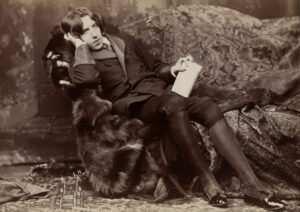
1. Lieutenant General Nathan Bedford Forrest
Reached his full potential
Historian Shelby Foote’s widely quoted view that Forrest stood alongside Abraham Lincoln as one of the war’s “two authentic geniuses” defines hyperbole. Forrest was an excellent cavalry officer who vexed Union forces in the Western Theater. His many admirers claimed he should have been given far greater responsibility, perhaps even army command. But Forrest lacked the administrative skills, temperament, and intellect to lead an army. Nothing in his record suggests he could have succeeded in operational or strategic planning and execution.
2. Major General John Fulton Reynolds
The ‘best’ based on little
Reynolds has often been described as the best corps chief in the Union’s Army of the Potomac, a gifted officer who turned down command of the republic’s largest force on the eve of Gettysburg. But he exemplifies the phenomenon of reputations inflated by death in dramatic circumstances. Prior to Gettysburg, he led the I Corps at Fredericksburg and Chancellorsville, in neither instance distinguishing himself. The shot that killed him on the morning of July 1, 1863, as he rode toward the fighting along McPherson’s Ridge, elevated him to the status of martyred hero—and sparked untold speculation about what might have been.
3. General Joseph E. Johnston
Retreated all the way to glory
Johnston appeals to those who believe Robert E. Lee too often pursued bloody offensives. Frequently compared to the great Roman general Fabius Maximus, he has been lauded as one who understood that masterful retreats and defensive thinking best suited the Confederacy’s needs. Yet his retreats in Virginia and Georgia demoralized the South, while his logistical blundering after First Bull Run, clumsy offensive on the Peninsula in May 1862, and pathological concern with rank and privilege all harmed the cause.
4. Colonel John Singleton Mosby
Achieved a ghostly impact
Few figures from the Civil War have inspired more romantic adulation than Mosby, whose battalion of partisan rangers operated in the Shenandoah Valley and elsewhere in northern Virginia. The Gray Ghost’s own postwar writings helped burnish his reputation, leaving no deed unmentioned and undoubtedly persuading 20th-century television producers to create a series based on his exploits. Yet Mosby’s attacks on supply trains and other activities, though annoying to Union commanders, did nothing to shape the larger outcome of the war in Virginia.
5. Brigadier General Joshua L. Chamberlain
Canonized by book and film
Chamberlain, commanding his 20th Maine Infantry, was one of many Union colonels who led their units with distinction at Gettysburg, and he compiled a splendid record in later campaigns. He remained largely forgotten until Michael Shaara’s book The Killer Angels and Ken Burns’s documentary The Civil War sent his stock soaring. By the mid-1990s, his reputation outshone that of all Union officers except Ulysses S. Grant and perhaps William Tecumseh Sherman. The “Hero of Little Round Top,” as he came to be known, surely deserves to be remembered—but only as one among many.
Gary W. Gallagher, a professor of history at the University of Virginia, is the author of The Confederate War (1997), Lee and His Army in Confederate History (2001), and The Union War (2011).





